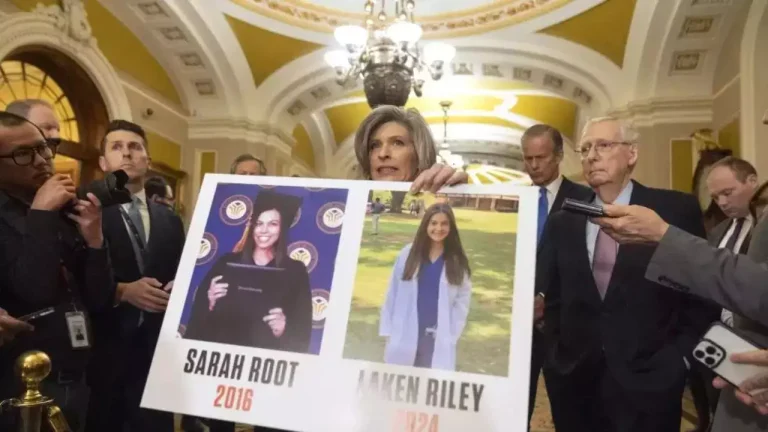In a proactive move to address the evolving landscape of artificial intelligence (AI) and its potential impact on elections, Georgia lawmakers are diligently crafting state-specific legislation. The proposed bills, HB 986 and HB 988, aim to criminalize the creation of deep fakes and institute annual reporting on the use of AI by state agencies, respectively.
HB 986: Criminalizing Deep Fakes
One of the key concerns driving legislative action is the emergence of deep fake technology, which allows the creation of convincing and realistic fake images or videos. HB 986 seeks to make it a criminal offense for anyone to create deep fakes, a measure intended to safeguard the integrity of political figures and prevent malicious actors from manipulating public perception.
Atlanta News First recently showcased realistic AI-generated images of political figures, created using various software, raising awareness about the potential threats posed by this rapidly advancing technology. Business professor David Schweidel emphasized the urgency of addressing this issue promptly. Schweidel demonstrated that the technology has progressed to the point where it can produce believable videos, blurring the line between reality and manipulation.
“If we want to police this, this is something that needs to happen now,” urged Schweidel, highlighting the need for timely legislative intervention to curb the misuse of AI-generated content.

Read more:
- California Lawmaker Proposes Speed Limit Technology to Curb Road Deaths
- Tragedy Strikes as Young Dancer Dies from Mislabeling of Peanuts in Cookies
- New Concealed Carry Law Denied by Another Northern California Count
- U.S. Takes Action to Safeguard Whales Around Offshore Wind Farms
HB 988: Transparency in AI Usage
In tandem with efforts to combat deep fakes, Georgia lawmakers are pushing for greater transparency in the deployment of AI within state agencies. HB 988 proposes the creation of annual reports that detail how state agencies are utilizing AI. This measure aims to provide insight into the scope and nature of AI applications, fostering accountability and ensuring responsible use of these technologies.
Georgia Secretary of State Grad Raffensperger underscored the significance of addressing AI-related risks, labeling them as two of the greatest threats to Georgia’s upcoming November elections. Raffensperger expressed concern over foreign interference and emphasized the need for voters to identify any affiliations with foreign governments.
“Some of the misinformation you’ve seen on the internet and social media was coming from Iran, China, Russia, in fact that’s even coming right now,” warned Raffensperger, emphasizing the real-time nature of these threats.
The Urgent Need for Federal Guidelines
Amidst these state-level efforts, there is a growing consensus that federal guidelines are essential to effectively regulate AI technologies. Professor Schweidel stressed the importance of setting limits at the national level to avoid a fragmented regulatory landscape.
“It’s saying this is not allowed in Georgia, but it is allowed in Texas, and so the person or the server may be in Texas where it’s legal. What type of action can I take?” questioned Schweidel, highlighting the complexity of enforcing regulations when they vary across states.
The call for federal oversight aligns with the understanding that AI-related challenges extend beyond state borders. Crafting legislation that addresses the nuances of AI while ensuring consistency across the nation is imperative to effectively mitigate the risks associated with these technologies.
As Georgia takes proactive steps to safeguard its electoral process, the nation watches closely, recognizing the need for a comprehensive and cohesive approach to navigate the intricate intersection of AI and democracy. The proposed bills, if enacted, could set a precedent for other states grappling with similar concerns as they seek to strike a delicate balance between technological advancement and the preservation of democratic principles.















+ There are no comments
Add yours